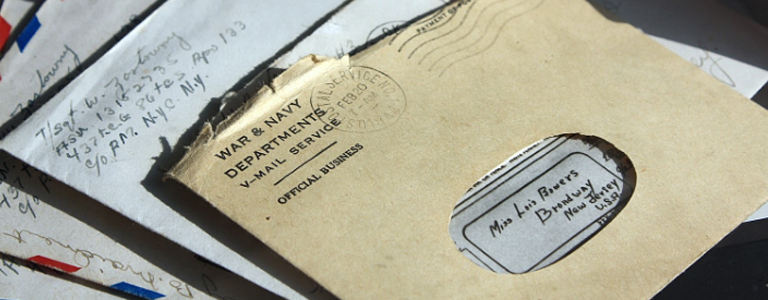EXCLUSIVE BRITISH MILITARY DISCOUNTS

The British Forces Post Office (BFPO) provides a postal service that you can use to send mail to;
- Members of the armed forces who are currently serving and their families.
- Individuals working for the Ministry of Defence (MOD).
- Other personnel entitled to the use of BFPO services.
Ensure that you only use BFPO when sending mail to a recipient that you know. This is because when you send unsolicited mail through the British Forces Post Office, you’re holding up letters from loved ones and essential items sent through the service.
You can use BFPO to send mail in the UK and around the world. This postal service can be a bit confusing, so, we have put together this handy guide to help you through the process.
How to Address Your BFPO Mail Correctly.
There are a few things that you need to keep in mind when addressing your BFPO mail;
- Ensure that you always include a return address on the back of the mail.
- You should only use capital letters for the address. Make sure that you stick to the correct address format depending on the recipient of the mail.
- If you’re sending the mail from a location other than the UK, include ‘GB’ after the BFPO number.
- You should not include the location in the address. The BFPO number is adequate.
- Ensure that nothing else is written on the packaging.
The address format will vary depending on who’s receiving the mail. If your letter is not addressed correctly, it may be delivered much later, or not at all.
If you’re sending mail to a current member of the armed forces, you should use the following format.
SERVICE NUMBER, RANK, NAME
UNIT/ REGIMENT
OPERATION
BARRACKS/ CAMP/ RAF STATION/ NAVAL SHIP
BFPO NUMBER
If you’re sending mail to a dependent of a serving member of the HM Forces, you should use the following format.
NAME OF DEPENDANT
C/O SERVICE NUMBER, RANK, NAME
UNIT/ REGIMENT
OPERATION
BFPO NUMBER
If you’re sending mail to non-service personnel, you should use the following address format.
STAFF NUMBER (if available)
NAME
UNIT/ DEPARTMENT/ SCHOOL
LOCATION NAME (if applicable)
BFPO NUMBER
Customs Declaration.
When sending items to a recipient who is not in the UK you’ll need to attach a signed customs declaration.
Small parcels that weigh 2kg or less are sent via Royal Mail services. If the items are valued at £270 or lower you’ll need to include a completed and signed CN22 form. If the value of the items exceeds £270, you’ll need to attach form CN23.
Larger parcels, that weigh between 2kg and 30 kg, are sent via Parcelforce Worldwide. To send such parcels, you’ll require a form PFU 509/CP72.
Cost of Sending Mail Using the BFPO.
The charges for sending mail or parcels using BFPO will be determined by the size and weight. The price will generally increase as the size and weight increases.
The charges for sending a letter start from £0.76 for a standard letter not exceeding length 24cm, width 16.5cm, and thickness 5mm. The cost for sending a large letter not exceeding length 35.3 cm, width 25cm, and thickness 25mm ranges from £1.15 to £2.95 depending on the weight.
The charges for sending a parcel depend on the destination and the size. For small parcels that weigh up to 1kg, you’ll pay £3.70. For parcels that weigh between 1.001 kg up to 2 kg, you’ll be charged £5.57. You can pay up to £37.45 for a large parcel weighing 30kg.
Enduring Families Free Mail Service (EFFMS)
With EFFMS, family and friends of military and other entitled personnel can send packages to certain locations at no cost. For a package to qualify for this service, the weight should not exceed 2 kg. The size of the parcel should not exceed length 45cm, width 35cm, and depth 16cm.
Are There Any Prohibited Items?
Before sending a package with BFPO, you should check and ensure that the contents are not prohibited. Some of the items that you’re not supposed to send through BFPO include;
- Any aerosols
- Alcoholic beverages.
- Perfumes and aftershaves
- Living creatures such as fish and insects
- Nail varnish, polish, or gel
- Financial documents.
- Arms and ammunition.
- Corrosives.
- Explosives
- Sharp items.
- Electronic devices sent with or connected to lithium batteries.
Forces Free Air Letters (FFALs)
Forces Free Air Letters are also referred to as Blueys. You can use blueys to send letters and messages to Forces personnel on operational duty free of charge. You can obtain blank FFALs from the post office at no cost.
Some locations are eligible for free postage while others are not. Therefore, you’ll need to confirm whether or not you need to pay depending on the location you’re sending the bluey to. If you’re required to pay, the price will be the standard UK rate rather than the costly international rate.
Sources:



